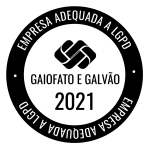The Simplified Taxation System is currently regulated by Supplementary Law No. 123 of December 15, 2006, which sets forth that microenterprises and small businesses, whose gross annual revenue in the calendar year is of up to R$ 360,000.00 and from R$ 360,000.01 to R$ 3,600,000.00, respectively, can make the monthly payment of their taxes through a single collection document.
This collection system seeks to benefit such companies because it makes the taxation method less burdensome and bureaucratic by allowing the small entrepreneur to pay lower tax burden than in other taxation systems and with much less bureaucracy with regard to its appraisal.
In order to use the benefits granted by Supplementary Law No. 123/2006, in addition to the gross annual revenue being categorized within the levels described above, its activities cannot be included in the list set out in paragraph 4, of article 3, of the referred Supplementary Law No. 123, and must also not be included in any of the prohibitions in article 17 of such law.
In the sole collection document, the small entrepreneur will pay all of the taxes. For purposes of appraising the amount due, a flat rate established according to the invoicing level of the microenterprise or small business must be applied. For example, if the gross revenue of the company in 12 months is within the range of R$ 540,000.01 to R$720,000.00, it is categorized under the rate of 7.54% distributed in the following manner:0.35% (Corporate Income Tax – IRPJ), 0.35% (Contribution on Net Profit – CSLL), 1.04% (Social Security Financing Contribution – COFINS), 0.25% (Profit Participation Program – PIS), 2.99% (Employer Social Security Contribution – CPP) and 2.56 (Tax on Distribution of Good and Services – ICMS).
In addition to these taxes collected through a single form, the small business will also have to pay other taxes for which it is responsible according to the legislation. They are the Tax on Financial Transaction (IOF), Import Tax (II,) Export Tax (IE), Rural Property Tax (ITR), Unemployment Guarantee Fund (FGTS), ICMS subject to the tax substitution system, among others listed in paragraph 1, of article 13, of Supplementary Law No. 123.
In order to benefit other companies, thus expanding the list of beneficiaries of the Simplified Taxation System, Supplementary Law No. 147 was published on August 8, 2014, changing the current system and establishing new procedures.
Among the most relevant points of Supplementary Law No. 147, we can immediately mention that which established that the criteria for categorization within the referred differentiated system will no longer be the type of activity but rather the size and invoicing of the microenterprise or small business.
Thus, other activities which were not considered under this differentiated payment system began to be categorized under the Simplified Taxation System, such as activities of an intellectual nature, of a technical, scientific or sports nature, thus benefitting professionals such as physicians, attorneys and other activities within the service sector.
Supplementary Law No. 147, which shall become effective as of January 2015, has also allowed the opening and the closing of microenterprises and small businesses to be conducted in a more efficient and quicker manner. A single registration per Corporate Taxpayer Number (CNPJ) was also created, dispensing the other state and municipal
registrations.
The new law also provided a few changes with regard to the ICMS due by those taxpayers subject to the tax substitution system, given it provided detailed consideration regarding which activities must pay ICMS by tax substitution starting in 2016. Therefore, any activity not included in the list set out by law (subparagraph “a”, item XIII, paragraph 1, of article 13 of Supplementary Law No. 123/06, with the amendments enacted by Supplementary Law No. 147/2014) will be exempt from paying ICMS by tax substitution.
It is worth noting that the former wording provided by Supplementary Law No. 123/06 did not contain a description of the activities in which ICMS would be charged via tax substitution, such that any and all activities subject to this system needed to pay ICMS using the two methods (Simplified Taxation System and Tax Substitution).
However, although Supplementary Law No. 147 has benefitted some sectors, and even regulates new aspects of the Simplified Taxation System, which are extremely important for the microenterprises and small business that adhere to this type of differentiated system, this new law, on the other hand, may result in an increased tax burden for some activities.
This is because Supplementary Law No. 147 created a new table establishing rates that vary from 16.93% to 22.45%, which may be more burdensome to the taxpayer. Depending on the activity, it can be more attractive to opt for the presumed profit system than the Simplified Taxation System.
In conclusion, it is worth noting that part of Supplementary Law No. 147 was duly regulated by Resolution No. 115 of the Simplified Taxation System Management Committee,published in the Official Gazette of the Federal Executive on September 8, 2014, with the remainder of the regulation scheduled to be published by the end of the year.
With the referred Resolution, the criterion for adhesion to the Simplified Taxation System became the invoicing of the companies (up to R$3,600,000.00 per year) and can no longer be based on the company activity as previously done, maintaining the tax substitution for a limited number of sectors and setting forth an extra limit so that small businesses can begin exporting as from 2015.





